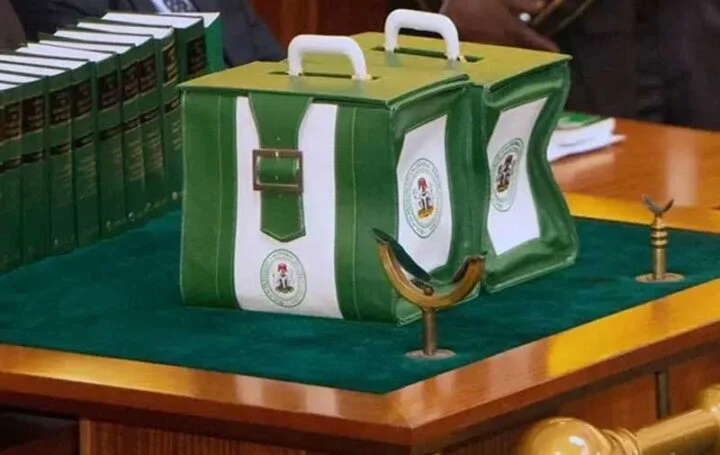On Monday, the United Nations Children’s Fund (UNICEF) expressed concern that Nigeria’s education crisis is harming children across the country, stating that Nigerian children’s rights to education are far from being realized.
In a statement to commemorate the International Day of Education, UNICEF Representative in Nigeria, Peter Hawkins, bemoaned the fact that one-third of Nigerian children are out of school, and one out of every five out-of-school children in the globe is Nigerian.
Hawkins stated that all Nigerian children, regardless of who they are or where they live, deserve a fighting chance, which must include education. “It is not just their right, but it is also the smartest and greatest approach to safeguard Nigeria’s future,” he continued.
He stated that Nigeria had the highest rate of out-of-school children in the world, with at least 10.5 million children out of school.
He recalled that there were 25 school attacks in 2021. A total of 1,440 children were kidnapped, with 16 of them being slain.
He further disclosed that in March 2021 alone, no fewer than 618 schools were closed in six northern states (Sokoto, Zamfara, Kano, Katsina, Niger, and Yobe) over the fear of attack and abduction of pupils and members of staff, stressing that the closure of schools in these states significantly contributed to learning losses for over two months
He said: “A full one-third of Nigerian children are not in school, and one in five out-of-school children in the world is Nigerian,” it lamented.
“While the education crisis in Nigeria is affecting children across the country, some children are more likely to be affected than others: girls, children with disabilities, children from the poorest households, in street situations, or affected by displacement or emergencies, and children in geographically distant areas are all disproportionately affected by the education crisis.”
Hawkins expressed sadness over the fact that “Millions of Nigerian children have never set foot in a classroom – and this is a travesty,” adding that: “Perhaps equally tragic is the high number of children who make it into a classroom, but never make the transition from primary school to secondary school – thereby cutting off their chances for a secure future.”
It is estimated that 35 percent of Nigerian children who attend primary school do not go on to attend secondary school. Half of all Nigerian children did not attend secondary school in 2021.
He said: “As we celebrate the International Day of Education today amid concerns in much of the world about the impact of COVID-19 on education, we must take a close look at what is happening to our children in Nigeria, and the opportunities they are missing out on when they lack education.
“We need to look towards communities – leaders, parents, teachers, and caregivers – and together, find the best strategies to ensure that all children enrolled into school, have access to continuous learning and ensure they emerge with quality skills that equip them for a prosperous future.
“We need to especially ensure that girls have access to learning – so they can receive an education that will begin to address issues of gender inequality. All girls have much to offer to find solutions to Nigeria’s challenges – and we have to nurture their creativity and innovation.
“We also need to ensure that children are safe when they are in school – no child should be afraid to enter a classroom – afraid their school might be attacked or that they will be kidnapped. And no parent should fear sending their children to school.”
It, however, said that Nigeria’s education system can be transformed through adequate funding to ensure schools are safe; the application of gender-responsive policies, including recruitment of female teachers and improved facilities for girls; the creation of multiple and flexible learning pathways for students, such as digital and transferable skills learning; the integration of foundational numeracy and literacy in Qur’anic schools; and teacher training in the latest methodologies.
He reminded President Muhammadu Buhari of his commitment to increasing Nigeria’s annual domestic education expenditure by 50 percent over the next two years, and by 100 percent by 2025.
He said in Nigeria’s N17 trillion 2022 budget signed into law at the end of 2021, 7.2 percent is allocated to the education sector.
“This is a step forward – an increase from 5.7 percent allocated for 2021 – though there is still a long way to go to reach the internationally recommended benchmark that countries spend 15-20 percent of their national budgets on education,” Hawkins said.
He, however, welcomed the government’s pledge to increase Nigeria’s annual domestic education expenditure by 50 percent over the next two years, and by 100 percent by 2025.
He said: “The Nigerian Government has committed to increasing funding for education, which is a very important step – far too many Nigerian children today are not in the classroom – and for those who are, far too many are not getting a solid education that can translate into good prospects for their futures.”

 BIG STORY2 days ago
BIG STORY2 days ago
 BIG STORY4 days ago
BIG STORY4 days ago
 BIG STORY5 days ago
BIG STORY5 days ago
 BIG STORY4 days ago
BIG STORY4 days ago
 BIG STORY3 days ago
BIG STORY3 days ago
 BIG STORY3 days ago
BIG STORY3 days ago
 BIG STORY2 days ago
BIG STORY2 days ago
 BIG STORY24 hours ago
BIG STORY24 hours ago
























